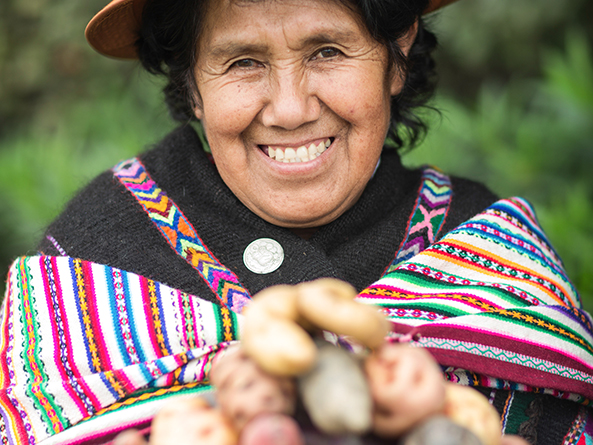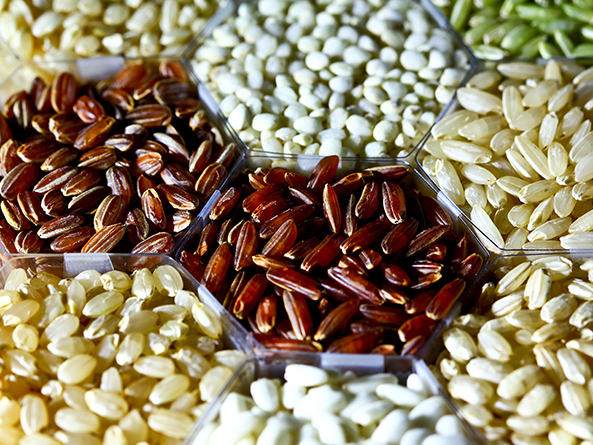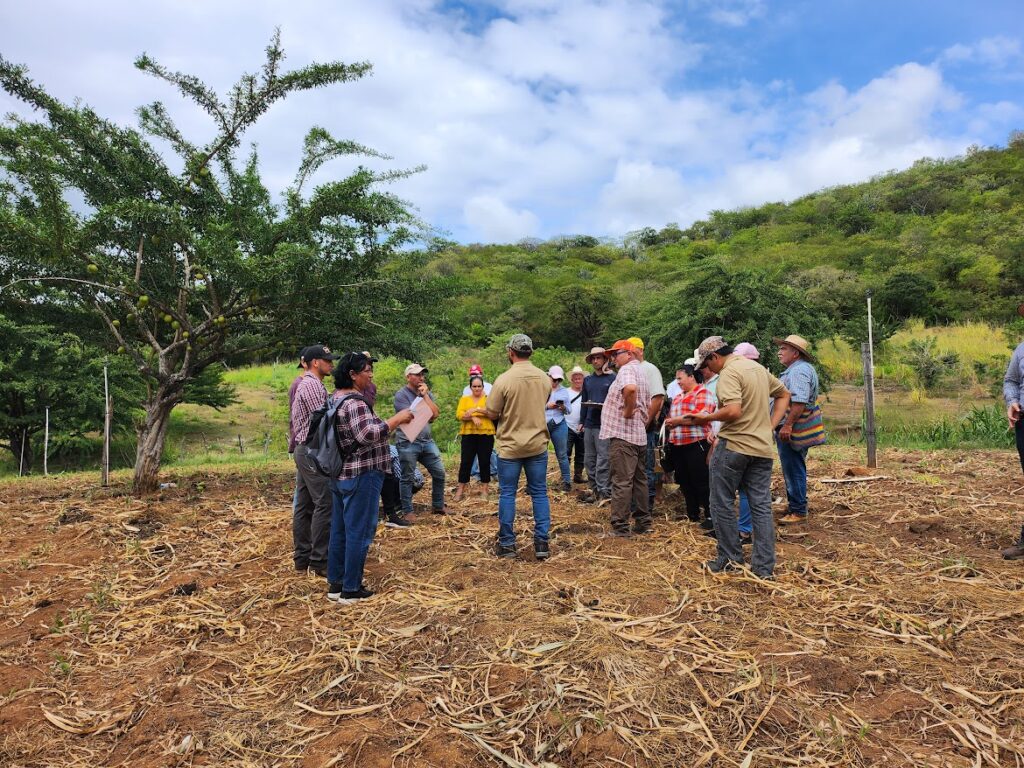El IICA y la Facultad de Agricultura y Ciencias de la Vida de la universidad Virginia Tech de EE. UU. publicaron el resumen ejecutivo del Informe GAP 2022, “Tendencias Problemáticas y Disrupciones del Sistema”, que ejemplifica cómo la agricultura sostenible ya se afianza en América Latina y el Caribe.

San José, 14 de septiembre de 2023 (IICA). El Instituto Interamericano de Cooperación para la Agricultura (IICA) y la Facultad de Agricultura y Ciencias de la Vida (CALS) de la universidad Virginia Tech de Estados Unidos se aliaron para promover el crecimiento sostenible de la productividad de la agricultura y la cooperación hemisférica, mediante la publicación conjunta del informe de Productividad Agrícola Mundial (GAP).
Ambas organizaciones lanzaron este 12 septiembre el resumen ejecutivo del Informe GAP 2022, “Tendencias Problemáticas y Disrupciones del Sistema”. Además, la versión 2023 del documento, que se publicará en Estados Unidos el 3 de octubre, se centrará en América Latina y el Caribe con estudios de caso sobre cómo la productividad agrícola sostenible comienza a arraigarse en determinados países.
De acuerdo con el Informe GAP 2022, el crecimiento de la productividad agrícola está en fuerte declive y los esfuerzos actuales para expandir la producción agrícola sostenible y así alimentar a una población mundial creciente y hambrienta deben cobrar un nuevo impulso para enfrentar los desafíos que afectan al mundo.
“Como región clave y garante de la seguridad alimentaria mundial, América Latina y el Caribe tiene un papel vital en la provisión de alimentos y agricultura de origen sostenible para un mundo que crece y tiene hambre”, afirmó Manuel Otero, Director General del IICA.
“El Informe GAP analiza cómo un aumento de la cooperación y el conocimiento en todo nuestro hemisferio puede ayudar a generar prosperidad y seguridad alimentaria y, al mismo tiempo, proteger la base de recursos naturales”, agregó.
Sin una acción rápida y una determinación a largo plazo, los sistemas agroalimentarios seguirán siendo vulnerables a los fuertes impactos ambientales, económicos y sociales, como demuestran los datos del Informe GAP de 2022.
Este informe es producido por la Facultad de Agricultura y Ciencias de la Vida (CALS) de Virginia Tech. El IICA ha sido un socio técnico formal del Informe GAP desde 2012.
“Cuando la productividad agrícola crece, significa que estamos produciendo más con menos insumos y recursos, lo que aumenta la sostenibilidad agrícola”, dijo Tom Thompson, decano asociado de CALS y director de CALS Global en la universidad estadounidense.
“Los datos presentados en el Informe GAP 2022 muestran que el crecimiento de la productividad agrícola mundial se ha desacelerado drásticamente, y en los países más pobres del mundo incluso se está reduciendo. Necesitamos revertir urgentemente esta tendencia para que podamos mejorar la seguridad alimentaria y nutricional, la sostenibilidad y la resiliencia”, añadió Thompson.
Según el informe, los esfuerzos actuales para acelerar el crecimiento de la productividad son inadecuados, el cambio climático tendrá un impacto significativo en la producción y las desigualdades regionales en todo el mundo exacerban aún más el problema.
Las diferencias regionales en el crecimiento de la productividad revelan un panorama que combina intranquilidad, alarma y esperanza. Ese crecimiento ya no es el principal impulsor del rendimiento agrícola en América Latina y el Caribe. En cambio, los productores regionales apuestan a la intensificación de insumos y optan por aplicar más insumos por hectárea de tierra como mano de obra, fertilizantes y capital para aumentar la producción. El Informe GAP 2022 describe cómo revertir esta tendencia y destaca la productividad sostenible como solución.
Los gobiernos, el sector privado, las instituciones de investigación, las organizaciones internacionales de desarrollo y los grupos de la sociedad civil deben trabajar mancomunadamente y crear un entorno propicio para que se adopte la innovación, los servicios y el conocimiento agrícola. Además, los pequeños productores deben tener acceso a la tecnología y la innovación para acelerar el crecimiento de la productividad, mejorar la resiliencia de la seguridad alimentaria, aumentar los ingresos y fortalecer la sostenibilidad. Solo entonces el mundo podrá garantizar sistemas agrícolas sostenibles y resistentes a las disrupciones.
Entre los muchos casos descritos en el informe, el IICA comparte la historia de cómo la producción de arroz puede ser más sostenible y productiva y brindar mayores beneficios a los agricultores en Chile y en todo el hemisferio mediante el uso del Sistema Intensivo del Cultivo de Arroz (SRI).
El Informe GAP de 2022 ofrece seis recomendaciones de políticas e inversión para hacer crecer la productividad:

● Invertir en I+D agrícola y servicios de extensión públicos.
● Adoptar tecnologías y prácticas basadas en la ciencia y la información.
● Mejorar la infraestructura y el acceso al mercado para insumos y productos agrícolas.
● Forjar alianzas para la agricultura sostenible y una mejor nutrición.
● Ampliar y mejorar el comercio regional y mundial.
● Reducir las pérdidas poscosecha y el desperdicio de alimentos.
El crecimiento de la productividad agrícola refuerza la resiliencia en tiempos de crisis sistémicas. La innovación y los servicios que mejoran la productividad reducen los riesgos para los productores y fortalecen la resiliencia ante eventos climáticos, conflictos y más. Esto se logra a través de variedades de semillas tolerantes a la sequía, riego por goteo y prácticas de conservación hídrica, cultivos de cobertura, mejoramiento genético animal, programas de extensión basados en teléfonos móviles y acceso a servicios financieros y de seguros, entre otros.
“Sabemos cómo aumentar la productividad agrícola. La necesidad actual más apremiante es que los líderes promulguen políticas que creen un entorno propicio para el crecimiento de la productividad. Es por eso que apostamos fuertemente a que las lecciones del Informe GAP lleguen a las manos de los decisores y formuladores de políticas de todo el mundo”, dijo Thompson.
Lanzamiento 2023 GAP Report (en inglés): https://globalagriculturalproductivity.org/gap-initiative-at-virginia-tech/2023-gap-launch/
Más información:
Gerencia de Comunicación Institucional
comunicacion.institucional@iica.int










